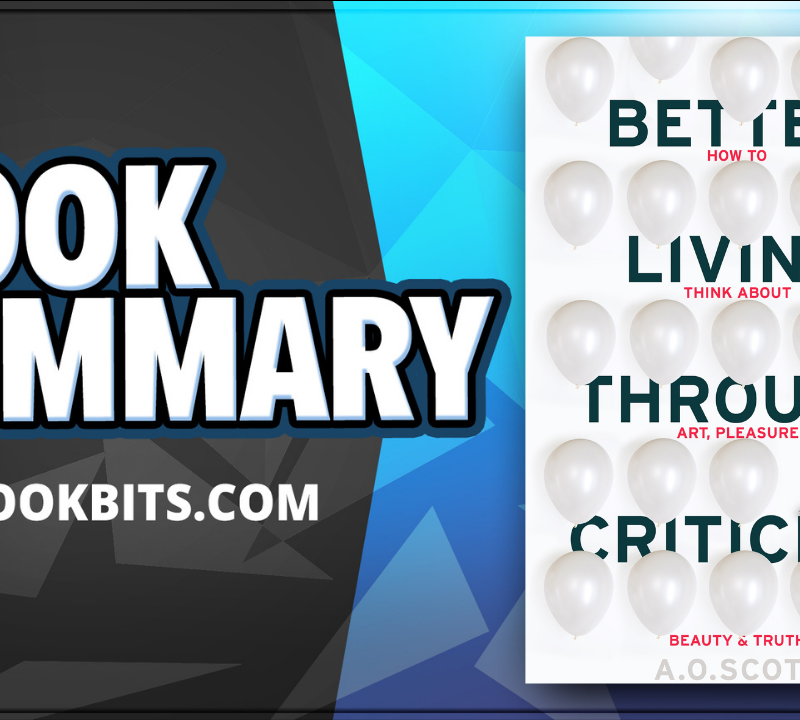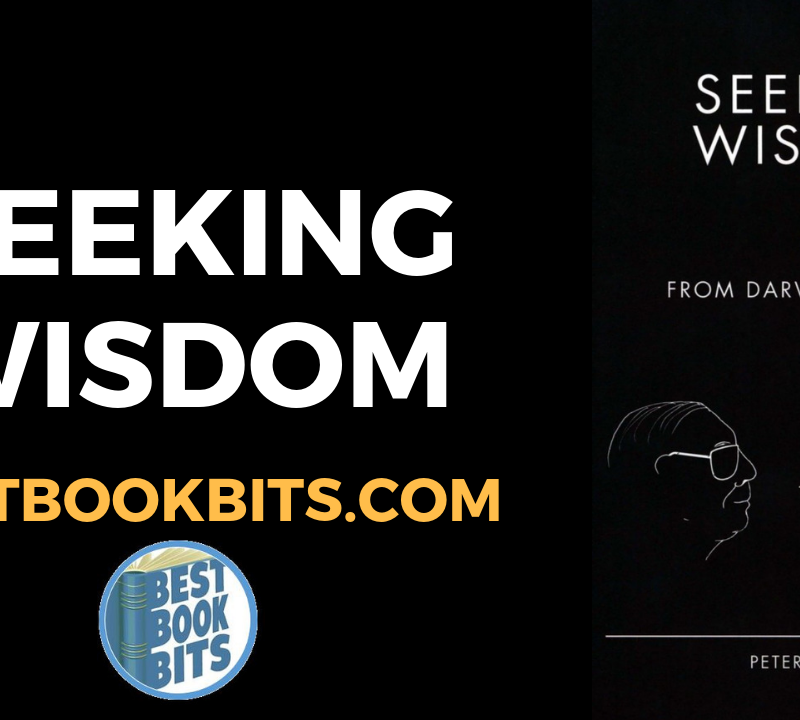★DOWNLOAD THIS FREE PDF SUMMARY HERE https://go.bestbookbits.com/freepdf
? MY FREE BOOK TO LIVING YOUR DREAM LIFE” https://go.bestbookbits.com/first-seven-steps
? SPONSOR BESTBOOKBITS BY USING PATREON https://www.patreon.com/bestbookbits
? SUPPORT BESTBOOKBITS BY CLICKING THE LINKS BELOW
150 PDF Summaries: https://go.bestbookbits.com/150
Coaching Program: https://go.bestbookbits.com/coaching
Subscribe to My Channel: https://www.youtube.com/bestbookbits?sub_confirmation=1
Website: https://bestbookbits.com
Instagram: https://www.instagram.com/bestbookbits
Spotify: https://open.spotify.com/show/0q8OW3dNrLISzyRSEovTBy
Facebook: https://www.facebook.com/michaelbestbookbits
Book Club: https://bestbookbits.com/bookclub/
Mailing List: https://mailchi.mp/d1dfc1907cdb/bestbookbits
The Practicing Mind by Thomas M. Sterner
The Book in Three Sentences
- “Real peace and contentment in our lives come from realizing that life is a process to engage in, a journey down a path that we can choose to experience as magical”.
- “When we subtly shift toward both focusing on and finding joy in the process of achieving instead of having the goal, we have gained a new skill. And once mastered, it is magical and incredibly empowering”.
- “With deliberate and repeated effort, progress is inevitable”.
“If you are not in control of your thoughts, then you are not in control of yourself”.
“A paradox of life: The problem with patience and discipline is that developing each of them requires both of them”.
“We erroneously think that there is a magical point that we will reach and then we will be happy”.
- “When we learn to focus on and embrace the process of experiencing life, whether we’re working toward a personal aspiration or working through a difficult time, we begin to free ourselves from the stress and anxiety that are born out of our attachment to our goals, our sense that ‘I can’t feel happiness until I reach my goal’.”
- “This ‘goal’ always takes the form of someplace we have not yet reached, something we don’t yet have but will at some point, and then, we believe, all will be right in our life”.
- “When we subtly shift toward both focusing on and finding joy in the process of achieving instead of having the goal, we have gained a new skill. And once mastered, it is magical and incredibly empowering”.
- “However, the practicing mind is quiet. It lives in the present and has laser-like, pinpoint focus and accuracy. It obeys our precise directions, and all our energy moves through it. Because of this, we are calm and completely free of anxiety. We are where we should be at that moment, doing what we should be doing and completely aware of what we are experiencing. There is no wasted motion, physically or mentally”.
- “If you are not in control of your thoughts, then you are not in control of yourself”.
- “A paradox of life: The problem with patience and discipline is that developing each of them requires both of them”.
- “We have a very unhealthy habit of making the product — our intended result — the goal, instead of the process of reaching that goal”.
- “We erroneously think that there is a magical point that we will reach and then we will be happy”.
- “The word practice implies the presence of awareness and will. The word learning does not. When we practice something, we are involved in the deliberate repetition of a process with the intention of reaching a specific goal”.
- “When you focus on the process, the desired product takes care of itself with fluid ease. When you focus on the product, you immediately begin to fight yourself and experience boredom, restlessness, frustration, and impatience with the process”.
- “When you focus your mind on the present moment, on the process of what you are doing right now, you are always where you want to be and where you should be”.
- “In order to focus on the present, we must give up, at least temporarily, our attachment to our desired goal”.
- “When you shift your goal from the product you are trying to achieve to the process of achieving it, a wonderful phenomenon occurs: all pressure drops away”.
- “We waste so much of our energy by not being aware of how we are directing it”.
- “Remember, judgment redirects and wastes our energy”.
- “In summary, creating the practicing mind comes down to a few simple rules: Keep yourself process-oriented. Stay in the present. Make the process the goal and use the overall goal as a rudder to steer your efforts. Be deliberate, have an intention about what you want to accomplish, and remain aware of that intention”.
- “The problem with patience and discipline is that developing each of them requires both of them”.
- “As we attempt to understand ourselves and our struggles with life’s endeavors, we may find peace in the observation of a flower. Ask yourself: At what point in a flower’s life, from seed to full bloom, does it reach perfection?”
- “Most of the anxiety we experience in life comes from our feeling that there is an end point of perfection in everything that we involve ourselves with”.
- “Stop yourself during the day as much as you can and ask yourself, ‘Am I practicing flower-like qualities and staying in the present with my thoughts and energies?’”
- “It is our ego that makes us create false ideas of what perfect is and whether we have reached it”.
- “Habits are learned. Choose them wisely”.
- “You cannot change what you are unaware of”.
- “What is required is that you are aware of what you want to achieve, that you know the motions you must intentionally repeat to accomplish the goal, and that you execute your actions without emotions or judgments; just stay on course. You should do this in the comfort of knowing that intentionally repeating something over a short course of time will create a new habit or replace an old one”.
- “All the patience you will ever need is already within you”.
- “Constantly reviewing new ideas creates, in a sense, a new habit of perceiving and processing our lives, a habit that brings us the sense of clarity we long for every day”.
- “There are not that many ideas in this book; just a few, and they have always been there for us to discover. But they slip away from us in our daily lives so easily. They need to be studied over and over again from different angles so that they become a natural part of us”.
- “Experiencing impatience is one of the first symptoms of not being in the present moment, not doing what you are doing, and not staying process-oriented”.
- “The first step toward patience is to become aware of when your internal dialogue is running wild and dragging you with it”.
- “The second step in creating patience is understanding and accepting that there is no such thing as reaching a point of perfection in anything”.
- “Progress is a natural result of staying focused on the process of doing anything”.
- “When you stay on purpose, focused in the present moment, the goal comes toward you with frictionless ease”.
- “When you constantly focus on the goal you are aiming for, you push it away instead of pulling it toward you. In every moment that you look at the goal and compare your position to it, you affirm to yourself that you haven’t reached it. In reality, you need to acknowledge the goal to yourself only occasionally, using it as a rudder to keep you moving in the right direction”.
- “Cheating discipline doesn’t work”.
- “The real thrill of acquiring anything, whether it is an object or a personal goal, is your anticipation of the moment of receiving it. The real joy lies in creating and sustaining the stamina and patience needed to work for something over a period of time”.
- “When you let go of your attachment to the object you desire and make your desire the experience of staying focused on working toward that object, you fulfill that desire in every minute that you remain patient with your circumstances”.
- “Simplicity in effort will conquer the most complex of tasks”.
- “The four ‘S’ words are simplify, small, short, and slow”.
- “Simplify. When you work at a specific project or activity, simplify it by breaking it down into its component sections”.
- “Small. Be aware of your overall goal, and remember to use it as a rudder or distant beacon that keeps you on course”.
- “Short. Now you can also bring short into the equation: ‘I’m going to work at cleaning the garage for forty-five minutes a day over the next few days until it is completely clean’”.
- “Slow. Incorporating slowness into your process is a paradox. What I mean by slow is that you work at a pace that allows you to pay attention to what you are doing”.
- “Nonjudgment is the pathway to a quiet mind”.
- “Equanimity is defined as even-temperedness and calmness”.
- “It is because equanimity comes from the art of nonjudgment. Nonjudgment quiets the internal dialogue of our mind”.
- “Our concepts of ideal and perfect are always changing”.
- “What we consider good or bad for ourselves doesn’t stay the same”.
- “Wisdom is not a by-product of age. Teach and learn from all those around you”.
- “With deliberate and repeated effort, progress is inevitable”
★DOWNLOAD THIS FREE PDF SUMMARY HERE https://go.bestbookbits.com/freepdf
? MY FREE BOOK TO LIVING YOUR DREAM LIFE” https://go.bestbookbits.com/first-seven-steps
? SPONSOR BESTBOOKBITS BY USING PATREON https://www.patreon.com/bestbookbits
? SUPPORT BESTBOOKBITS BY CLICKING THE LINKS BELOW
150 PDF Summaries: https://go.bestbookbits.com/150
Coaching Program: https://go.bestbookbits.com/coaching
Subscribe to My Channel: https://www.youtube.com/bestbookbits?sub_confirmation=1
Website: https://bestbookbits.com
Instagram: https://www.instagram.com/bestbookbits
Spotify: https://open.spotify.com/show/0q8OW3dNrLISzyRSEovTBy
Facebook: https://www.facebook.com/michaelbestbookbits
Book Club: https://bestbookbits.com/bookclub/
Mailing List: https://mailchi.mp/d1dfc1907cdb/bestbookbits













